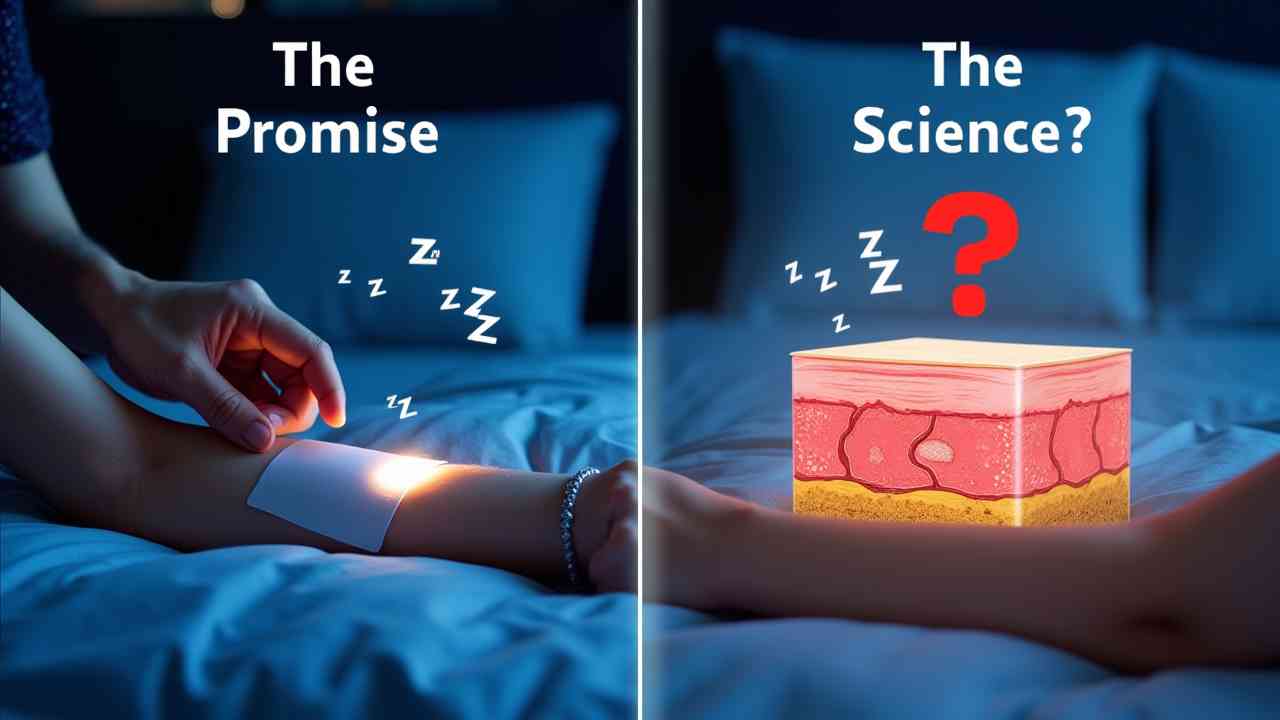
💤 Do Sleep Patches Work? A Guide to This Sleep Aid Trend
💤 Do Sleep Patches Actually Work? A Guide to This Sleep Aid Trend 💤
❗ CRITICAL HEALTH WARNING: Sleep patches are sold as dietary supplements or cosmetic products. They are NOT regulated by the FDA for safety or effectiveness in the same way as medications. Their claims of ingredient delivery and efficacy are often unproven. Always consult with a doctor before using any new sleep aid.
In the search for a better night's sleep, new and innovative products are always emerging. The sleep patch is one of the latest trends to gain popularity, especially on social media. It is a transdermal patch, similar to a nicotine patch. It claims to deliver sleep-promoting ingredients through your skin over several hours.
The promise of a simple, effortless way to improve sleep is very appealing. But does this popular product live up to the hype? This guide will explore what is in these patches and what the science says. Let's separate the marketing from the medical facts. ⚠️
🤔 How Do Sleep Patches Claim to Work?
The main selling point of a sleep patch is the method of delivery. The theory is that by delivering ingredients through the skin, you get a slow, steady release all night long. This is supposed to be more effective than a pill, which can be metabolized quickly.
This method also bypasses the digestive system. This can be appealing for people who have sensitive stomachs. The patches are designed to be a simple, "set it and forget it" solution for a restless night.
What are the common ingredients?
Most sleep patches contain a blend of well-known, natural sleep aids. The star ingredient is usually Melatonin. Other common ingredients you might find include:
- Herbal extracts like Valerian Root, Passionflower, and Hops.
- Magnesium
- GABA
- What Does the Science Say? (The Major Caveat)
This is where the topic of the sleep patch becomes very controversial and uncertain. While the ingredients themselves are known to be associated with sleep, the main issue is transdermal absorption. Your skin is a powerful barrier designed to keep things out. Not all molecules can pass through it effectively.
While some studies show that melatonin can be absorbed through the skin, there is very little robust, independent scientific evidence to prove that these commercial patches deliver the ingredients effectively or at a consistent rate. The amount of an ingredient that actually reaches your bloodstream can be highly variable and is often unknown.
Much of the positive effect people feel may be due to the powerful placebo effect. If you believe it will help you sleep, it often does!
- What Are the Potential Risks and Downsides?
While generally considered low-risk, there are a few downsides to be aware of.
- Lack of Regulation: This is the biggest risk. Because they are not regulated as drugs, you do not really know how much of the active ingredient is in the patch or if it is being absorbed at all.
- Skin Irritation: The adhesive on the patch can cause skin irritation, redness, or an allergic reaction in some individuals.
- Cost: These patches can be a very expensive way to get ingredients that are much cheaper and more reliably delivered in oral form.
✅ What Are the Proven, Safe Alternatives?
If you are struggling with sleep, the best approach is to focus on evidence-based strategies. The quiet, cozy autumn evenings here in Bursa are a perfect time to establish a calming bedtime routine. 🍂
Sleep Hygiene: This is the #1 most effective tool. Go to bed and wake up at the same time every day. Keep your room cool, dark, and quiet. Avoid screens before bed. Instead, try reading a book or drinking a warm, non-caffeinated herbal tea.
Oral Supplements: If you want to try an ingredient like melatonin, a low-dose oral supplement (a pill or a gummy) is a much more reliable and affordable method. Always talk to your doctor first to get the correct dosage and to ensure it is safe for you.
The final verdict on the sleep patch is one of caution. It may be a helpful placebo for some, but it is not a proven medical treatment. 🩺